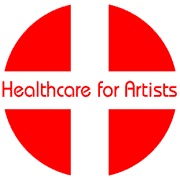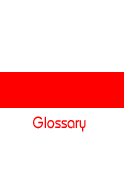






A Guide for Massachusetts Health Care Organizations and Providers Enrolling Artists Working in all Disciplines into Health Care Reform Options
First, thank you for caring for Massachusetts artists and helping them navigate the health care system and the new options under the Massachusetts Health Care Reform Law. Your organization is a resource gate way for our population for health care and other community based resources. If possible, please refer artists to this web site designed for them: www.healthcareforartists.org
We are using a broad and inclusive definition of artists working in all disciplines. It encompasses: visual artists, film makers, musicians, composers, writers, poets, playwrights, new media artists, crafts people, actors, singers, performance artists, graphic designers, lighting designers, dancers, choreographers, and the like. We have encouraged artists to self-indentify that they are artists when they interact with you and your organization. If possible, could you please keep count of how many artists contact you and how many you can enroll into your programs. This would be very helpful. We are trying to track the numbers for our in-state purposes and for a national artists health care research project we are collaborating on.
Some agencies and organizations have even designated a staff person to work specifically with the artists population and we hope you will consider doing this at your organization.
If artists are not eligible for Commonwealth Care or any of the other subsidized health coverage programs. One key improvement of the ACA was that Modified Adjusted Gross Income (MAGI) is now the measure used to see if individuals are eligible for subsidies/tax credits to pay for their insurance. This is very helpful for those who are self-employed or have 1099 income. To learn what MAGI is: http://laborcenter.berkeley.edu/pdf/2013/MAGI_summary13.pdf
To hopefully make it a little easier for you and the artists trying to assess their income level and to see what programs they might be eligible for, we have asked artists to think about their income in the following three categories:
• W-2 Income only: A Full time job and/or multiple part time jobs and your employer(s) takes out withholdings (i.e., social security, federal, Medicare, etc.). They are paid on a regular basis by their employer(s), these jobs may or may not be temporary, semester based or seasonal. Their employer(s) issues them a W-2 form for your taxes. They are not reporting any non W-2 income (freelance work, sales/commissions from their artwork, grants, etc.) on their taxes. They may, however, be reporting their art making expenses on their taxes. IMPORTANT to know is that many artists do not have regular pay stubs, but may be paid regularly by checks that do not have paystubs (i.e. the artist may not know what their gross pay is before taxes via a pay stub).
• Combination Income: Their income is a combination of W-2 income (could be a full time job and/or multiple part-time jobs that are yearly, semester based and/or seasonal or any combination), grants, commissions, money earned from selling work/performing, 1099 income/freelance work, visiting artists engagements, and/or some self employment income. They may, however, be reporting their art making expenses on their taxes, and/or they are reporting their businesses expenses of being self-employed (which may or may not be their art making expenses). If they are not counting their businesses and/or art making expenses on their taxes you may want to urge them to speak to an accountant to have them prepare their income taxes. AGAIN it is important to know that many artists do not have regular pay stubs, but may be paid regularly by checks that do not have pay stubs (i.e. the artist may not know what their gross pay is before taxes via a pay stub).
• Non W-2 Income/Self-Employed Income only: All moneys earned are non W-2 income. They may, however, be reporting their art making expenses on their taxes, and/or they are reporting their businesses expenses of being self-employed (which may or may not be their art making expenses). If they are not counting their businesses and/or art making expenses on their taxes you may want to urge them to speak to an accountant to have them prepare their income taxes. These artists will not usually have regular pay stubs to determine their income by.
SOME KEY Information on artists
Many artists do not hold one 9-5 job, but rather have combination sources for their income (multiple part-time jobs that are semester based and not yearly based, freelance income, contract jobs, self employed income, grants, etc. They usually don't have regular pay stubs to determine their income.
Many artists have very fluid employment patterns. For example, they may have a job that offers them insurance for part of the year (a contract teaching job) and then the second part of the year they have a different job that does not offer them insurance. So many artists will be in and out of employer based health insurance plans.
The majority of artists are self-employed, have multiple part-time jobs, and/or have combination income and thus do not have access to health insurance from an employer or for that matter any of their employers. And those who are offered insurance from their employers, usually can't afford it.
Artists' income not only fluctuates from year to year, but from month to month. This has proved problematic for this population to be processed to see if they are indeed eligible for the existing free care system and sliding scale fee-based system used by health care providers in the Commonwealth.
It will be important to keep the above issues in mind when creating a system to enroll artists into your system. We urge you to create a process those that can not only enroll people who hold one job, but a system that can also process artists and those who do not have regular pay stubs. You may need to consider creating a specific form or process to be used by artists who have multiple sources of fluctuating income and/or do not have regular pays stubs to assess their income. Contact the South Boston Community Health Center/ Pat O'Keefe for more information on their process (617-269-7500).
In general, insurance presently available to artists is usually economically out of reach for them. Many cannot afford the premiums for Commonwealth Care/subsidized plans-those who are eligible for it and those who are not.
Our population also has very very limited discretionary income, so the very notion of affordable needs to be actively discussed (i.e., they often can't afford the prescriptions or even the co-pays).
Our population has been bartering for health care and health services for years (for example during early years of the HIV/AIDS crisis in this country, many visual artists were trading art work as a payment for their health care).
Important Background on artists:
Please read the Fall 2009 report on Massachusetts Artists, Stand Up and Be Counted. It contains very important information on health care issues impacting artists. Artists have their own health care issues directly related to their work.Presently, the vast majority of artists working in all disciplines in the state are weighing whether it makes sense to stay in the state due to the high costs of living here. As highlighted in the 10/29/06 Boston Globe Sunday Magazine's cover story, RI is successfully courting our artists, arts organizations, and other businesses that make up our creative economy. The Artists community is already at a tipping point and they are ready to and have started to relocate to other states.
The vast majorities of living/contemporary artists of all disciplines -with the exception of the few who have become "stars" - cannot and do not earn a living from their work as artists and must have supplementary jobs to supply their income whether those jobs are teaching positions and/or jobs in fields not related to their artistic discipline.
Artists pay out a significant amount of their gross income to their art making. The largest subsidy to the arts in this country does not come from the government or private sector but from artists from their unpaid labor, underpaid labor, and from them subsidizing their art making with their own income. Also due to the costs artists incur from making their work, gross income is not a fair way to assess an artist's income. After business tax income is a fairer way to assess an artist's income (line 22 on the federal income tax form if they are even able to do this-some only have W-2 income that is not related to their art making and can't do deductions). Again we urge that perhaps a special form could be made for artists and those who are self-employed.
Artists are the working poor of the art world, yet they are foundation of creative economy that everyone benefits from. In general, artists live on the edge economically and any major shift or new unforeseen cost could severely and negatively impact an artist. The foundation of the creative economy, our artists community, is a very fragile and fluid one.





